MFC System of cement screeds
- Moisture resistance
- Freshness
- Conductivity
MFC Portland 020 is designed for levelling layers especially in residential, civil and industrial buildings with an operational load of up to 7.5 kN/m2. It is very suitable for underfloor heating systems - the screed structure is homogeneous throughout its thickness without further compaction (good thermal conductivity). MFC Portland 020 screeds are commonly performed with a flatness of ± 2 mm/m and do not normally require further alignment. Before laying thin-film (PVC, linoleum, marmoleum, etc.), it is recommended to smooth the surface with a self-levelling thin- layer screed e.g. MFC Level 304 or MFC Level 320. As a base layer MFC Portland 020 is compatible with commonly used adhesives and floor coverings.
Cement screed: MFC Portland 020 (025, 030) is a fine-grained cement, filler, and special additive compound. It is supplied with an application trailer (Transmix/Bremat) as a pre-mixed fresh mixture for immediate processing.
Benefits of delivery with the TransMix/Bremat application semitrailer
Mixing and conveying equipment TransMix/Bremat is primarily intended for the production of liquid screeds, directly on the customer's premises. It is equipped with raw material trays, mixer and screw pump, where the fresh screed is transported directly to the place of storage.
Main benefits:
- Fully automated production with accurate feed rate ensures a stable screed quality
- Transmix on site is only for the period necessary for laying screed
- the production and transport of the screed is continuous, the downtime of the workers and the machinery is no longer possible
- only the amount required for the area is produced - minimizing extra costs
- immediate consumption control
- minimum requirements for site equipment
Exit location: Tišnov u Brna
Quantity is no challenge to us...
Currently we already have seven fully equipped sets, with daily output reaching more than 210 m3!
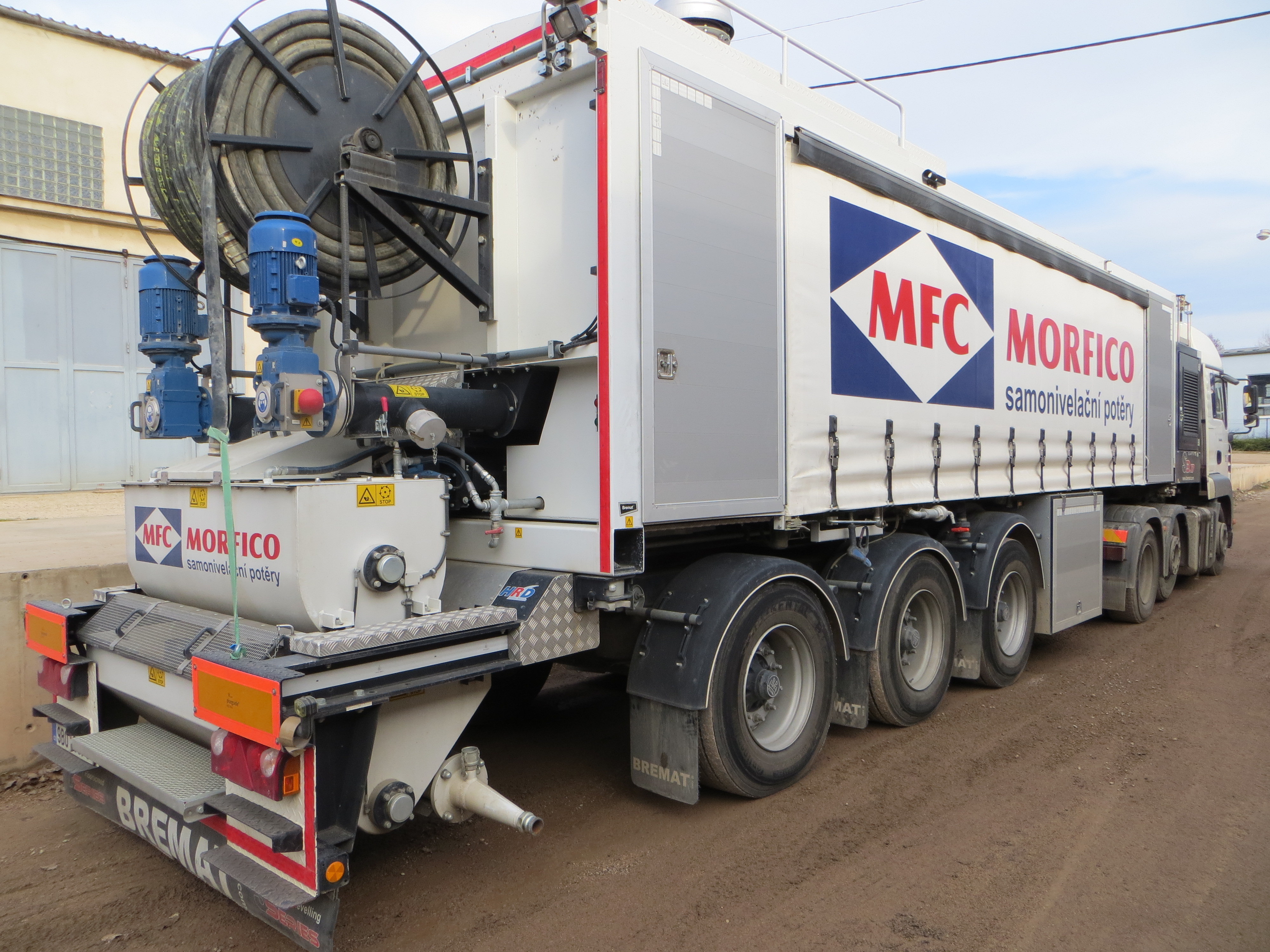 |
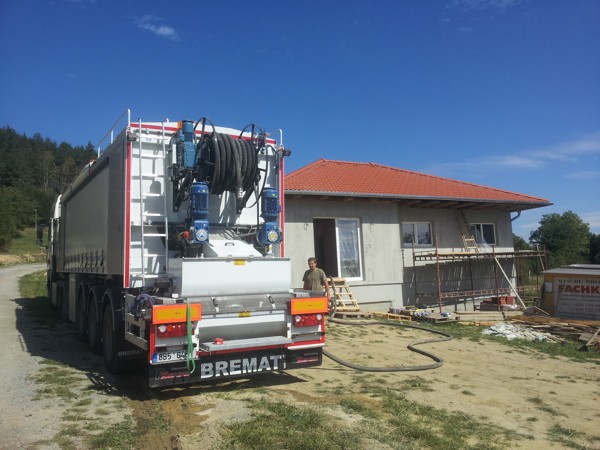 |
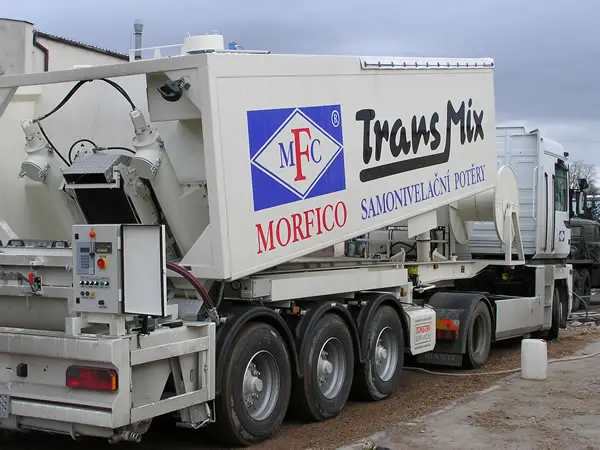 |
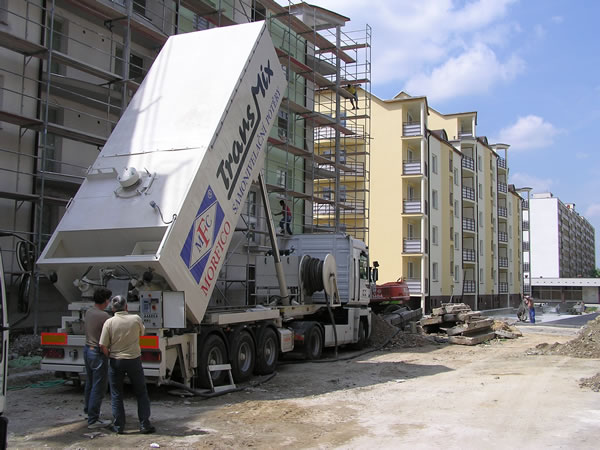 |
System benefits:
- always fresh - screed production directly on the customer site
- Productivity (ca 1000 m2 floor areas per day)
- Suitable for damp areas
- Good thermal conductivity, suitable for underfloor heating
- Low coefficient of thermal expansion
- High degree of flatness ± 2 mm/m
- Wear layer at 24 hours, 50% of the load after 5 days
- Minimum volume changes during ripening
- Containing polypropylene fibres
Disadvantages:
- Need for dilatation (max. 35 m2)
- Time of drying before laying (ca 28 days)
Basic compositions of cement screeds
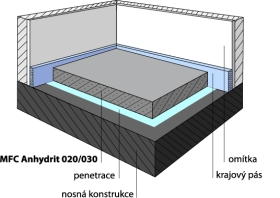 |
BONDED SCREEDS Bonded screeds are usually responsible for balance and prepare the uneven surface of the carrier substrate for subsequent use. The screeds must be bonded to the substrate on the entire surface firmly and without interruption. This way you can ensure the transmission of the action potential power directly to the base layer. Layer thickness from 10 mm. |
|
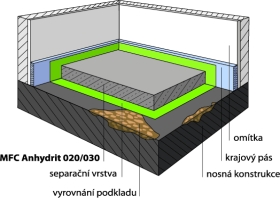 |
SCREED ON THE SEPARATION LAYER
|
|
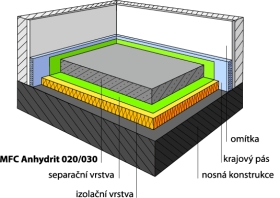 |
SCREED ON THE INSULATION LAYER Increased sound insulation requirements, especially in residential construction, require a floor structure with a coating on the insulation layer. It is with these floor structures that the minimum thickness of the screed is dependent on the expected operating load and also on the stability of the insulation layer. Layer thickness from 30 mm.
|
|
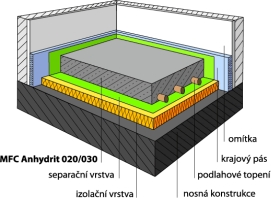 |
HEATING SCREED
|



